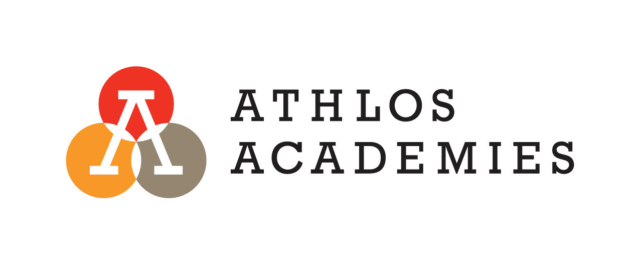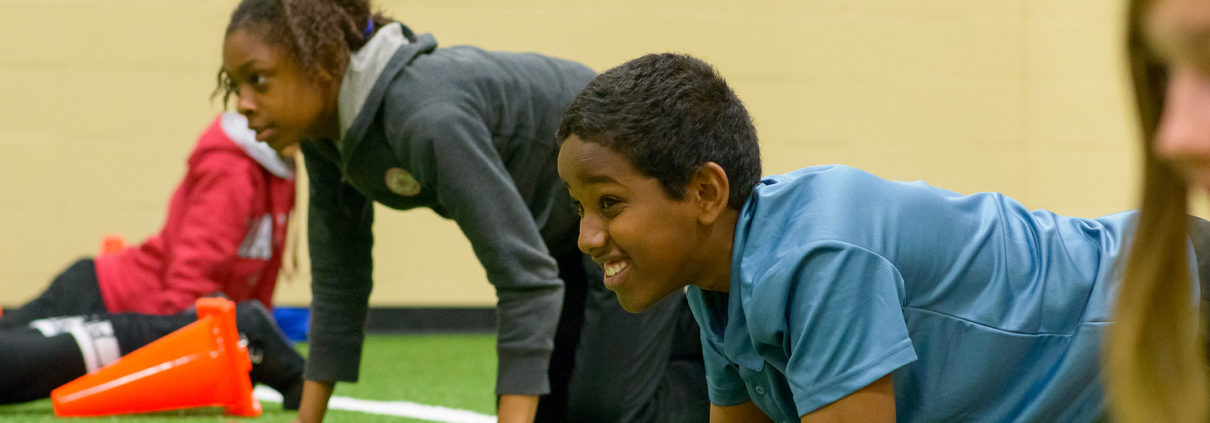Growth Mindset and Physical Fitness
The Athlos Athletic Curriculum provides coaches an opportunity to help students develop a growth mindset from a young age and maintain that outlook as they tackle all sorts of new physical challenges. The most important tool to remember when teaching a growth mindset is to award effort rather than outcome.
Through research about long term athletic development, we know that not all children develop at the same rate and as a result will pass through physical milestones at different times (Balyi et al. 2013). Those who develop earlier will often be praised as “more talented.” As a result, these students develop a fixed mindset that they are superior and do not have to work hard to succeed. Those slower on the developmental curve feel that they will never possess the talent to compete at the same level and develop the mindset that their abilities are “fixed” and they are better off just not trying.
The goal at Athlos Academies is to embrace a growth mindset in the classroom and on the turf. By incorporating an innovative curriculum, knowledgeable and degreed athletic performance coaches, and state of the art facilities, Athlos schools provide students the perfect opportunity to develop a growth mindset in regards to their physical and athletic abilities. The hope is that their mindsets and experiences on the turf will not only challenge students to develop a higher level of physical fitness and overall athleticism but will also expose them to movements and activities they might not otherwise attempt.
The best way to reinforce a growth mindset is to teach it. Performance Character huddles on the turf are the perfect times to teach students about their capacity to improve the abilities that they have. During class, our coaches use vocabulary that reinforces effort. They talk about what students CAN do and how they can modify activities to help all students achieve success. Coaches then progress activities in a way that does not reinforce failure but instead gives students the opportunity to succeed. If an activity seems too easy for some students, coaches get them involved by asking how the activity could be more challenging, working with students to make it harder and guiding the interaction. Students have the opportunity to discuss their attempts at different activities with other students to try and learn new strategies for solving specific problems.
At Athlos we believe that if our coaches can help students develop a growth mindset toward their physical capabilities, Athlos students will be more willing and eager to continue with a life full of physical activity leading to a much healthier lifestyle. Whether that is playing recreational team sports, running the local trails, or pursuing an athletic scholarship, every student’s experience at Athlos will arm them with the confidence to pursue a life full of physical challenges and help them develop a habit of increased physical activity.
Balyi, I et al. (2013) Long-Term Athletic Development. Champaign, IL: Human Kinetics
By: Chandler Herdt




Leave a Reply
Want to join the discussion?Feel free to contribute!